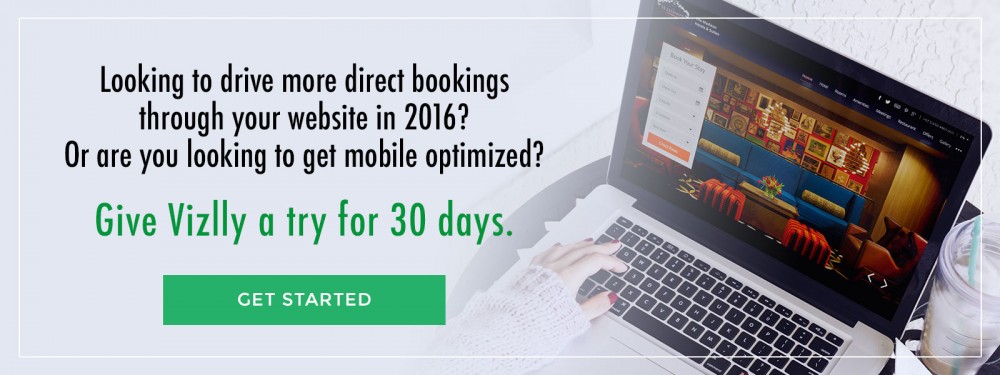Mobile Compatible vs. Mobile Optimized – What’s the difference?
 The difference between a mobile compatible website and a mobile optimized website continues to be a source of confusion. According to a recent Google study, 61 per cent of shoppers will leave a website if it is not optimized for their mobile device.[i]
The difference between a mobile compatible website and a mobile optimized website continues to be a source of confusion. According to a recent Google study, 61 per cent of shoppers will leave a website if it is not optimized for their mobile device.[i]
In other words, the experience of a non-optimized website can negatively impact a consumer’s likeliness to book and overall perception of the brand. Many hoteliers are aware of this consequence but are still struggling to understand what characterizes a mobile optimized hotel website.
What is a mobile compatible site?
A mobile compatible website is an HTML based website that doesn’t contain Flash. It means that a website is viewable on a Smartphone or Tablet, but it is not optimized for these devices. These websites have been designed for web browsers on PCs with much larger screens and navigation using a mouse.
You will notice a few things about these websites when you attempt to browse them on your Smartphone or Tablet – you have to scroll left, right, up or down and figure out how the site “works”, media may load slower, text is tiny so you have to zoom in to read it and the links are small and difficult to click with your fingertip. Sound cumbersome? That’s because it is.
If you have done nothing to optimize your website for mobile devices, then it is likely compatible by default. It is also likely that visitors are abandoning your site pretty quickly. Why? Because poor experiences do not convert customers.
What is a mobile optimized site?
A mobile optimized website is a website that is designed specifically for a Smartphone or a Tablet, not a desktop computer or laptop. A mobile optimized website doesn’t require that someone pinch and zoom to read text. On a mobile optimized site the navigation is built for efficiency, the images and media are optimized for quick loading and the content is succinct for maximum effectiveness. Additionally, mobile-only functionality includes tap-to-call, tap-to-email and map functionality.
If your hotel’s website has been optimized for mobile devices you will know – not only because it is much easier to navigate and use compared to the experience of a compatible website but because you will likely see less bounce rates, higher engagement levels and improved conversions.
To help set the record straight, here is a table showcasing the main differences between the two and to illustrate the importance of having a hotel website that is optimized for mobile devices.
|
Visit www.thegeorgianterrace.com from your smartphone or tablet. |
COMPATIBLE WEBSITE |
| Viewable in landscape and portrait mode | Only fits in one direction – if any |
| Fits screen dimensions | Requires users to scroll to see all information |
| Big, ‘finger-friendly’ buttons and navigation | Small text links that are difficult to click |
| Incorporates swipe and zoom options | Navigation designed for PC users (not mobile devices) |
| Video, virtual tours and photos that load quickly | Media does not load quickly |
| Click to e-mail options and click to call on smartphones | No clear links to quickly connect with the hotel |
| Optimized for mobile data speeds | Takes too long to load |
| Text is large and readable | Text is too small to easily read |
| Short and bulleted text | Long paragraphs of text |
| Displays an overall appealing site | Text and visuals seem out of place/un-organized |
| Easy to navigate | Difficult to navigate |
| Links to a mobile optimized booking engine | No link to booking engine or link to regular booking engine |
| Quick and simple booking process | Frustrating booking process |
*Experience as of October 2012.
As you can see an optimized mobile website provides a much more appealing shopping experience that travelers have come to expect and enjoy. Mobile shopping has become a trend of the present – and is only expected grow – so the time is now to optimize your website.
[i] http://marketingland.com/google-survey-what-users-want-from-mobile-sites-22606
Mobile will continue to be an important trend – find out the other big trends of 2015 so you can stay on top of the competition by downloading our eBook: The Most Important Hotel Marketing Trends of 2015.



